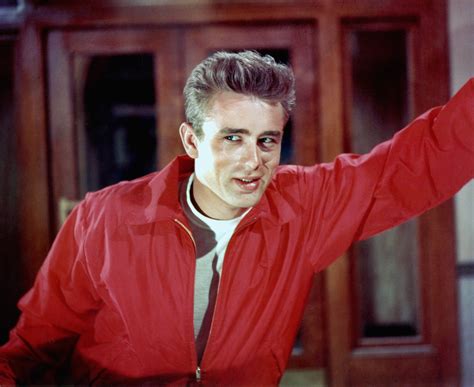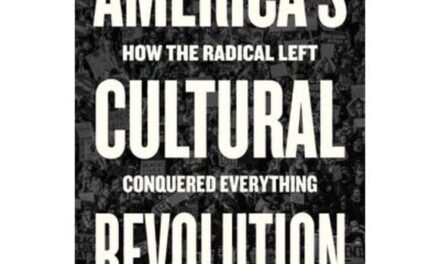Not long ago, writing about Chuck Berry in The Christian Review, I observed: “The post-war West, with Elvis and James Dean, the Beatles and the Stones, the Sex Pistols and the Ramones, has taken the images, sounds, and attitudes of rebellion as, at best, a necessary rite of passage, a prelude to a dog-eat-dog adult world.” Even as I typed, a voice inside whispered, “Someone’s going to call you out on that one.” But it was only a whisper and easy enough to ignore at the time.
Sure enough, an email from my former professor (and now friend) Michael Platt duly arrived with some approving words for the article but also the appropriately professorial reprimand, “I do think you are wrong about James Dean; in Rebel, with only hindrance from his contumacious mother and weak father, he fights through toward maturity.”
In my defense, I deliberately did not phrase my sentence as an appraisal of Dean’s films, but instead as a reflection of his public image: the self-absorbed, rebellious youth with unkempt hair, sunglasses, and a cigarette dangling from his lips. After all, that’s what people remember—and I mean people who have never seen (in reverse order of their release) Giant, Rebel Without a Cause, and East of Eden.
Some may recall his untimely death—or maybe timely since the Porsche that he drove might well have seemed a death wish on wheels. John Dos Passos summed up Dean’s image succinctly in Midcentury (1961) his last complete novel, as a kid who rhapsodized about speed’s being the only way to die. Was Dean’s thought careless, arrogant, or a moment of youthful bravura? Who can say? It was, at least, prophetic.
Allowing for those facts, Dr. Platt is, nonetheless, right. For years I assumed Rebel Without a Cause (1955) was what so many have assumed: a story of troubled youth, rebels one and all at war with anything and everything. In National Review a few issues back, Andrew Cline bundled Rebel with the release of Chuck Berry’s “Maybellene,” the inaugural issue of Playboy, and the publication of The Man in the Gray Flannel Suit; in other words, as one of a select number landmarks of cultural dissolution. The title of the film invites the conclusion, and since that’s all most know people about it, little more need be said.
However, when I finally decided to sit through Rebel, I discovered, much to my surprise, an oddly conservative statement—an experience not dissimilar to hearing the sixties group The Kinks lament (and, indeed, they did) the disappearing English village green. The plot, as expected, wrestles with the problems of the “troubled youth of today,” or, to be specific, of 1955. Jim Stark, played by Dean, is a new kid in town—one gathers somewhere in California—whose parents have moved from one place to another all because their son has failed to fit in socially in their previous “homes.”
The opening scene introduces Jim at a police station, drunk and insolent, all of which seems predictable enough. But the real “message” of Rebel surfaces quickly here and in a scene that follows within minutes.
At the station, Jim’s parents arrive and the first theme of the family comes into focus with the presentation of a mother who overly protects and a father who wants to be little more than a pal. The proper order of the household is thereby reversed, and, as the story unfolds, it’s clear that Jim grasps its effects. Fathers who are not authorities and bulwarks of strength produce wayward kids, though, notably, kids in search of the fathers they don’t have, as mirrored in the other characters of Jim’s age whom he slowly gets to know: Judy (Natalie Wood) who desperately wants her father to love and protect her, and Plato (Sal Mineo) who sees Jim as the father he has never known. Left to themselves for a brief time in a deserted mansion, the three fall into the roles of the father (Jim), mother (Judy), and son (Plato), which they yearn to see in their own fractured homes.
The second theme emerges in a high school field trip to a planetarium, where the students view an “educational” film about the beginning and ultimate annihilation of life on planet earth, or, as we might now say, the gospel according to Carl Sagan. As the students sit in the dark, the planetarium director coolly narrates the inevitable fate that awaits them all in a world “destroyed as we began in a burst of gas and fire.” The burst really does happen with a perceptible bang, but that moment of scientific silliness is nothing compared to the horror on the young faces as the director concludes, as if from on high: “The heavens are still and cold once more. In all the immensity of our universe and the galaxies beyond, the earth will not be missed. Through the infinite reaches of space, the problems of man seem trivial and naïve, indeed; and man existing alone seems himself an episode of little consequence.” He pauses and then says, “That’s all.”
It’s a wonder he didn’t add, “Have a nice day.”
This theme is really dual in its implications. Its nihilism is obvious, but lurking in the background is a question that takes the viewer back to the initial theme: Do the parents of these young people have any idea what they’re being taught? If they do not—and Rebel strongly argues for their ignorance and possible indifference—then their children really have no future.
Far from an endorsement of the meaningless of life, hopeless rebellion, and indifference to consequences that almost invariably accompany such a philosophy, Rebel Without a Cause highlights the chaos of the modern family and prescribes the restoration of traditional order, implicitly with the beliefs that made that order possible.
According to the testimony of various actors from the film, Dean all but directed a number of the Rebel’s scenes with the full approval its official overseer, director Nicholas Ray. If that is true, it’s hard not to detect inside James Dean a very wise old man hiding behind the façade of the hip rebel.
The title of what has become his most famous film may appear an appropriate epitaph for the life Dean led, but the film itself should banish the misconception, even as it teaches a few lessons that, sadly, still need to be inwardly digested by a society that has tenaciously resisted them. That’s another way of saying that James Dean was a rebel with a cause that needs to be ours.














